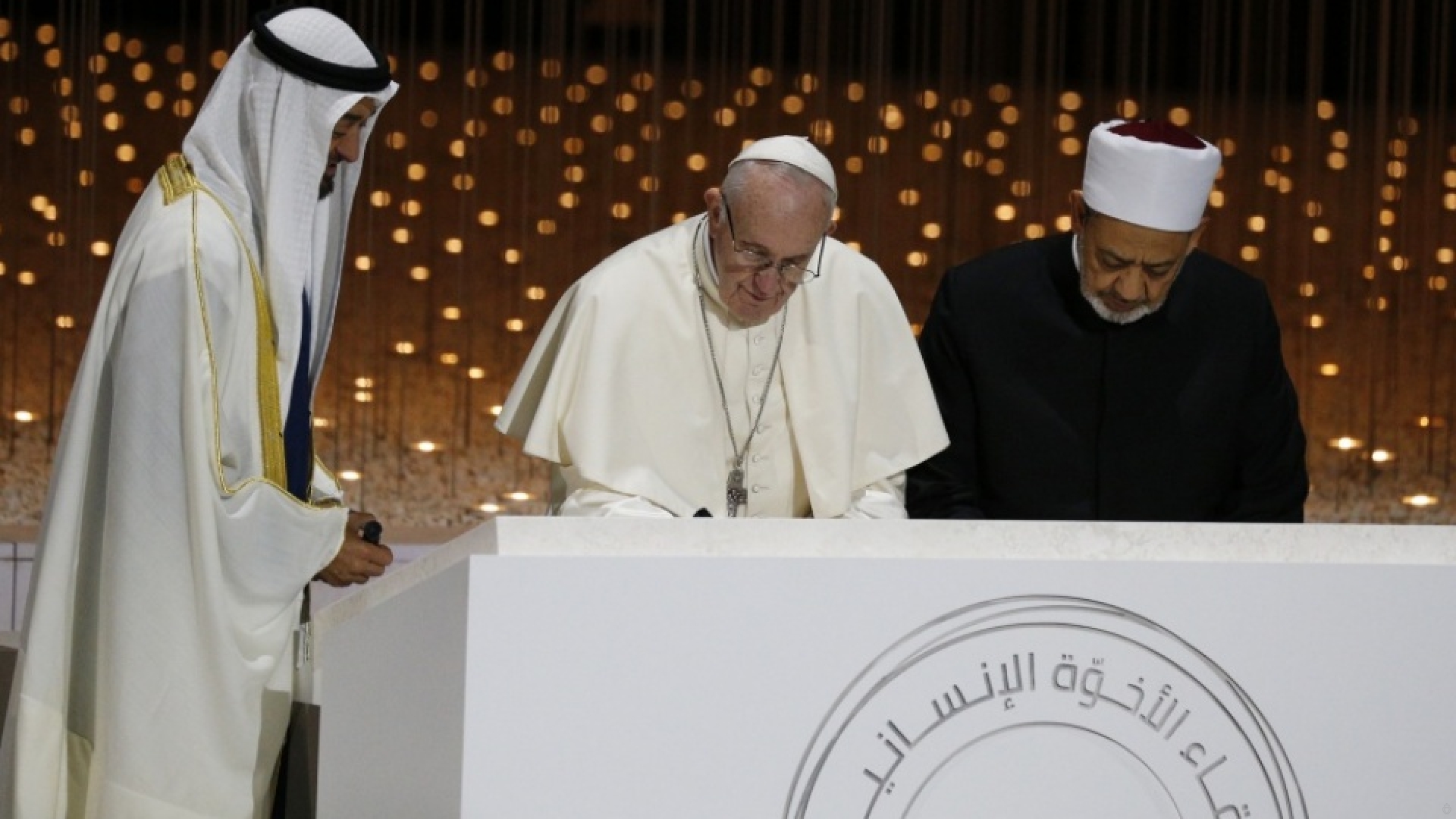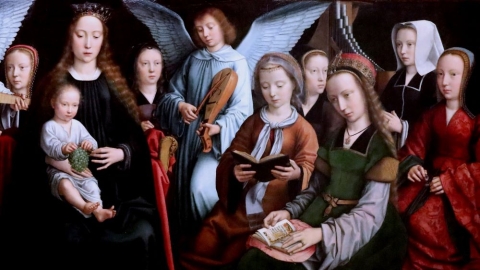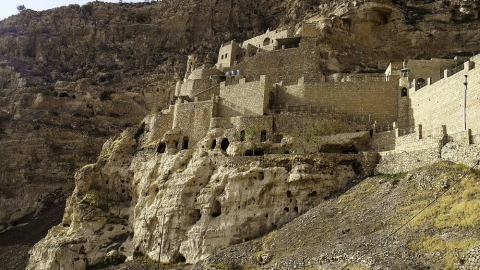Is the Document on Human Fraternity A Fools’ Game?

From the Catholic point of view, the contents of this Document pose a serious problem. While it is not a magisterial teaching, that is to say, taught by the pope as the Supreme Pastor, it does contain expressions that the Catholic Faith cannot accept. See our article “From Utopia to Heresy”.
Now, from the Muslim point of view, it is also clear that this text cannot be accepted by a good number of the followers of Mohammed.
Who is Ahmed el-Tayeb?
It is important, first of all, to understand that the Grand Imam of Al-Azhar, who signed the Document with Pope Francis, does not represent much of anything for Islam. He is an employee of the Egyptian government, nominated by this government and obliged to follow certain government policies. He is not even unanimously accepted in the university he directs, much less in the Muslim world.
We must not forget that Islam is not represented by one single man in the way the Catholic Church is represented by the pope. What is more, Islam is divided into many different branches–the Shiites and Sunnites being the most important–schools, tendencies or interpretations. The Document signed on February 4, 2019, therefore, really represents only the viewpoint of the man who signed it and his close followers.
And his hands are tied. He cannot afford to concede certain points that would draw upon him the wrath of his fellow believers.
The Limits of a Text Intended for the Western World
A few examples taken from the text will suffice to prove this.
Forgetting the Synagogues
"The protection of places of worship—temples, churches, mosques—is a duty guaranteed by religions. The term "temples" can be applied to a Protestant or even pagan place of worship, such as Buddhism or Shintoism. But it does not usually apply to a synagogue...This word is curiously missing from the Document. And for good reason: very few Muslims would have tolerated it in this place.
The jihad is not mentioned
“We resolutely declare that religions must never incite war, hateful attitudes, hostility and extremism, nor must they incite violence or the shedding of blood.” Whatever certain liberal Muslims may say, it is easy to provide proof to the contrary.
The normative sources of Islam are the Koran, a book held to be inspired by Allah for Muslims, and their “traditions”, or hadiths. These are an impressive number of traits from the life of Mohammed (words, facts and deeds), reported by “companions” who passed them down. There are at least a million of these hadiths. These two sources are complementary. One refutation of what the Declaration claims can be taken directly from the Koran that prescribes killing the “idolaters”, a term for those who believe in the Trinity: “Slay the idolaters wherever you find them and take them captive and besiege them and lie in wait for them in every ambush.” (Surah 9, verse 5)
But in the Koran, Allah also prescribes the jihad (or jihad fi sabîl Allah: jihad in the path of Allah, armed warfare for Allah’s cause), that can be commended for various reasons. As a means of conversion: “There will be between us and you. Enmity and hatred forever until you believe in Allah Alone!” (Surah 60, verse 4) Or as a means of weakening non-Muslim societies: “O you who believe! Fight against the unbelievers near you and may they find harshness in you.” (Surah 9, verse 124) This war is to be waged at all time periods, for it is an unchanging rule: “Cursed be (the hypocrites) wherever they may be, they will be captured and killed according to the custom of Allah with those who lived before—you will find no change in the conduct of Allah.” (Surah 33, verse 62)
Allah promises a punishment for those who fear to accomplish the jihad: “If you do not go to the fight, Allah will chastise you with a painful chastisement.” Allah is the true author of the jihad:
No, it is not you who have killed them; it is Allah who has killed them. And it is not you who have shot arrows; it is Allah who has shot them, to try the believers Himself with a great trial. For indeed, Allah hears all things and knows all things. (Surah 8, verse 17)
The chastisement of women is not mentioned
“Efforts must be made to free women from historical and social conditioning that runs contrary to the principles of their faith and dignity.” What do the Koran and the hadiths say about women?
- In the law on inheritance, a woman’s share is half of a man’s share: “Allah orders you to attribute to a boy the share equal to the share of two girls.” (Surah 4, verse 11)
- Before a judge, the testimony of a man is worth that of two women. (Surah 2, verse 282)
- The veil (hijab) is prescribed by a hadith: “Omar greatly desired that the verses of Al Hijab (observance of the veil by Muslim women) be revealed. Granting his desires, Allah revealed the verses of Al Hijab.” (Hadiths of Sahih Bukhari, Vol. 8, 74:257)
- Women can easily be beaten. (Surah 4, verse 34)
- As for stoning an adulteress, while it is not mentioned in the Koran, it is confirmed by several hadiths.
- Lastly, Mohammed said: “I saw hell populated mostly by women.” (reported by several hadiths).
Media Hype and a Fools’ Game
Granted that a very vast majority of Muslims consider these points we have just mentioned as part of their faith or their law, what does the signature at the bottom of the Document on Human Fraternity represent? Even if his sincerity were unquestionable, it would be binding only for the person of the Grand Imam of Al-Azhar.
Therefore, since neither one nor the other of the two men who signed was able to do so in the name of the principal truths of his faith or belief, the Document signed in Abou Dabi, despite all the media hype, is nothing more than a fools’ game.
Sources: FSSPX / FSSPX.News – 3/1/2019





